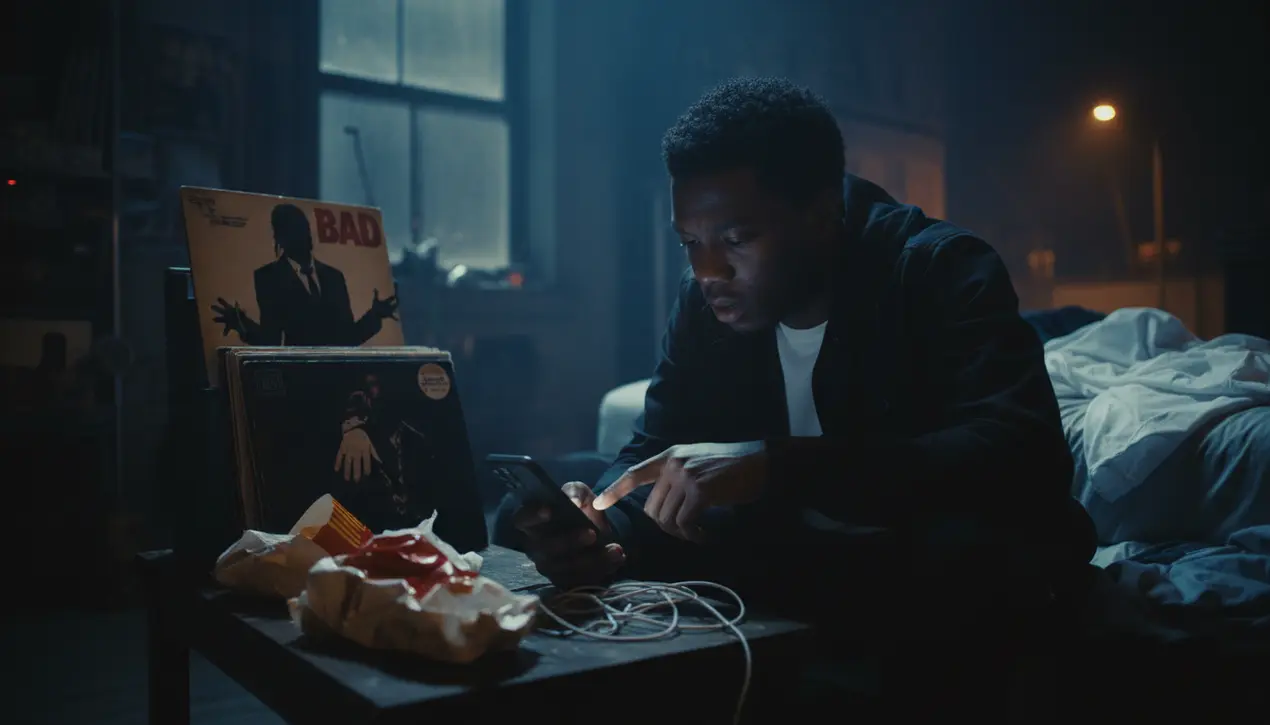
Entertainmentcelebrities
Kid Cudi Criticizes Michael Jackson's Legacy in Deleted Post.
BR
Brian Miller
21 hours ago7 min read1 comments
The digital sphere erupted this week when Kid Cudi, born Scott Mescudi, launched a surprising broadside against the King of Pop himself, Michael Jackson, in a since-deleted social media post that has since been screen-captured and disseminated across the internet like a modern-day musical heresy. While the exact wording remains contested, the core of Cudi's argument seemed to question the sanctity of Jackson's legacy, suggesting his monumental albums were 'just' music—a seemingly reductive take on an artist whose cultural footprint is arguably as vast as the moonwalk itself.This isn't just a casual hot take; it's a fundamental challenge to the established hierarchy of pop music canon. To understand the weight of this, one must rewind to Jackson's unparalleled run from the disco-funk emancipation of 'Off the Wall' through the world-conquering, genre-obliterating phenomenon of 'Thriller,' which didn't just break records but redefined the very potential of an album as a global cultural event, a piece of art that sold over 66 million copies and won a record-breaking eight Grammys in a single night.The subsequent 'Bad' and 'Dangerous' albums cemented his status as a creative force whose influence seeped into music video production, dance, fashion, and global stardom in a way perhaps only rivaled by contemporaries like Prince, with his funk-rock virtuosity, Stevie Wonder's soulful renaissance, or Marvin Gaye's social consciousness. For an artist of Cudi's generation—a figure who himself broke ground by blending rap with melancholic melody and opening doors for conversations about mental health in hip-hop—to seemingly dismiss this legacy is to ignite a firestorm.It raises complex questions about how we separate art from the artist, especially given the shadow of the serious allegations that have followed Jackson's legacy posthumously, a debate that has only intensified in the #MeToo era. Is Cudi's comment a reflection of a generational shift, where new listeners, armed with streaming catalogs and less emotional attachment to the 80s, evaluate music purely on sonic merit, detached from its historical context and the mythos of its creator? Or is it a deliberate provocation, a calculated move to assert his own artistic lineage, which draws more from the alternative rock and hip-hop of the 90s than the polished pop-soul of the previous decade? Music critics are already weighing in, with some defending Cudi's right to a subjective opinion, noting that all art, no matter how iconic, must eventually withstand the test of time and critical re-evaluation.Others see it as a profound misunderstanding of Jackson's role as a Black artist who shattered racial barriers on MTV and became the first truly global pop superstar, a achievement that transcends mere chart positions. The very act of deleting the post adds another layer of intrigue; was it a moment of genuine conviction retracted under pressure from fans or industry peers, or a strategic retreat after achieving the desired buzz? This incident echoes past spats, like when Kanye West proclaimed 'Thriller' wasn't a great album, only to later walk back his statements, highlighting the perpetual tension between established legends and the new guard seeking to define their own space. The conversation Cudi sparked, whether he intended to or not, forces us to look beyond the hits and consider what we truly mean by 'legacy'—is it the unassailable, museum-piece reverence for past greatness, or a living, breathing thing that each generation is free to reinterpret, critique, and sometimes, even dismiss? In the grand playlist of music history, Kid Cudi has just hit the shuffle button, and everyone is listening.
#Kid Cudi
#Michael Jackson
#deleted post
#controversy
#music legacy
#featured
Stay Informed. Act Smarter.
Get weekly highlights, major headlines, and expert insights — then put your knowledge to work in our live prediction markets.
Related News
Comments
Loading comments...
© 2025 Outpoll Service LTD. All rights reserved.